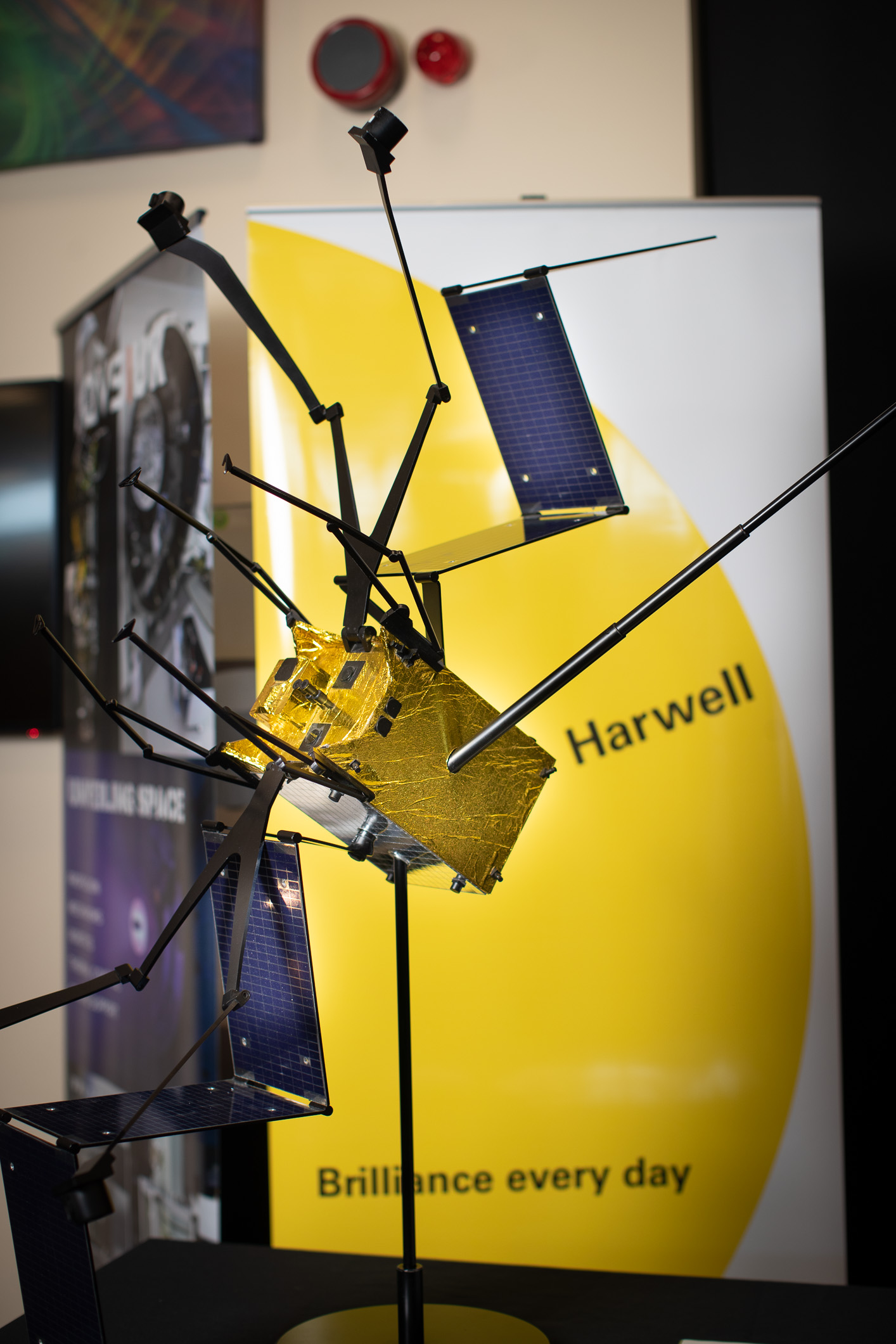
Harwell Space Cluster on track to hit 2030 target of 200 space organisations and 5,000 people
Headcount at Europe’s most concentrated cluster of space organisations and fast growth space start-ups grew 16% in 2019
New figures released today by Harwell Campus demonstrate the continued growth of the Harwell Space Cluster with the number of organisations in the Cluster growing from 89 to 105 in the year to December 2019. Collectively employing over 1,100 people (growing 16% year on year), Europe’s most concentrated space cluster is on track to reach its ambitious target of 200 organisations collectively employing 5,000 people by 2030.
While the global space sector is expected to continue growing strongly, with estimates forecasting $1 trillion in revenue annually by 2040 up from $350bn today[1], the UK space sector plays a crucial role in that growth. With 948 UK organisations active in space, up from 208 a decade ago, the UK is generating £14.8 billion in income[2] at 2.6x the national average for productivity.
Harwell Campus’s contribution to national growth lies in its ability both to connect the best ideas with the advice, talent, facilities and funding needed to develop innovative technologies and sustainable new businesses, that can scale rapidly on campus, and as the host to national capabilities and facilities that benefit companies and researchers across the country – creating new markets, new jobs and driving economic growth throughout the UK.
“Having strong research and unique testing facilities, combined with space expertise, business support and physical space to grow has been critical to the rapid development of the Harwell Space Cluster,” comments Dr Joanna Hart, Harwell Space Cluster Development Manager, UKRI-STFC. “The concentration of space activity alongside the Energy and Health technology Clusters at Harwell Campus has created a fertile environment for multi-disciplinary innovation. In turn attracting companies to Harwell from across the space value chain.”
Competitive Advantage
“The three Clusters together now comprise 162 organisations, and, significantly, almost a third of these are active across more than one cluster, providing avenues for technology translation across disciplines.” said Dr Barbara Ghinelli, Director of Harwell Clusters and Business Development, UKRI-STFC. ”Innovative thinkers and business leaders are no strangers to seeing the potential of technology from one sector being applied to another – cross-sector collaboration creates opportunities in new markets and this is the competitive advantage that Harwell provides businesses located at the Campus.”
New companies seeking the competitive advantage that Harwell provides include hiSky, Borwell, Raytheon and B2B Space. Inmarsat the world leader in global, mobile satellite communications has recently established a presence at Harwell, Nick Shave, Inmarsat Vice President Strategy and Programmes explains why: “Inmarsat spends, on average, £180m per year with the UK supply chain and we are keen to continue this valuable collaboration with the British space sector. A really good way to build on this prosperous partnership is to tap into the innovative environment at the Harwell Space Cluster and we are delighted to establish ourselves here.”
Working alongside the stakeholder organisations at the heart of the Harwell Space Cluster – STFC-RAL Space, European Space Agency, Satellite Applications Catapult and UK Space Agency – the organisations within the cluster are collectively delivering on the UK vision to achieve 10% of the global market share by 2030. “We are working closely with partners on the Campus to support Harwell’s continued success as an engine of growth which is part of our on-going efforts to make the UK’s space sector the best place to work and grow a business,” explains Colin Baldwin, Head of Local Growth Strategy at the UK Space Agency. “Developing a vibrant space ecosystem that stretches across the whole of the country is essential to achieving UK ambitions in space, and realising the benefits of space endeavour and enterprise back here on Earth.”
Business Incubation
A major challenge for early-stage companies is investment opportunities and business support – both of which are integrated into the Campus model. The European Space Agency Business Incubation Centre United Kingdom (ESA BIC UK) at Harwell, provides business and technical support and funding for space related start-ups looking to turn their ideas into profitable products and services using space technology, or developing technologies for use in space. LIFT ME OFF, one of the ten incubates to be located at Harwell in 2019, specialises in novel in-orbit servicing solutions for the small satellite market.
Michel Poucet, CEO, LIFT ME OFF believes that “As a start-up it is always a challenge to connect with the market and get feedback from companies and agencies. Joining the ESA BIC UK at Harwell means that not only do we get to be part of this great incubator network, but we can work closely with industry partners to reach our vision to make Space more sustainable and safer.”
Having physical space to grow is a major consideration for any fast-growing company looking for a UK location. Companies such as Oxford Space Systems, GMV, AG Space and Thales Alenia Space have all grown their businesses and scaled-up at Harwell, benefiting from the Campus model which provides everything from co-working spaces and bench labs, to small/medium/large mixed use hybrid office and lab/engineering space, up to design and build options.